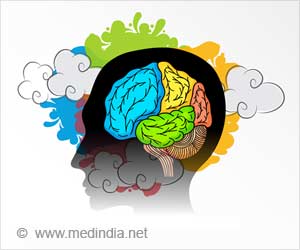The scientists from US have found that an amphetamine-like stimulant has a calming effect on children with attention deficit hyperactivity disorder (ADHD) .
A new study undertaken on rats, seemingly suggests that Ritalin, a drug that is widely used to treat ADHD, appears to work by tweaking the brain so it isn't as easily distracted by any stimuli from the outside world. The scientists have however cautioned that the findings aren't definitive and may have nothing to do with how the drug works in children and adults with ADHD. Barry Waterhouse, a professor of neurobiology and anatomy at Drexel University, in Philadelphia and the co-author of the study explained that they are hopeful that the research would lead them to a better understanding of both the disorder and the drug.ADHD is a disorder where the people have trouble focusing on their tasks; they tend to become hyperactive and impulsive. There are many sceptics who question the disorder itself, and whether people having ADHD are actually suffering from it. It is also very unclear on the mechanism of action of Ritalin, which is a methylphenidate, and other drugs in the same class treat successfully almost 80% of the ADHD patients. Dr. David W. Goodman, an assistant professor at Johns Hopkins University and director of the Adult Attention Deficit Disorder Center of Maryland explained that these drugs have a success rate higher than any other class of psychiatric drugs. Co-author Waterhouse said that it becomes more a paradox as these drugs are all stimulants, and they produce an opposite effect on patients with ADHD, this he explained was probably due to the disease manifesting itself as a type of neurological over stimulation.
Researchers feel that Ritalin somehow affects neurotransmitters; that are the chemicals that help signals travel through the brain. Waterhouse and colleagues in their new research studied the brains of rats after they were given Ritalin and then had their whiskers stroked, to stimulate their brains. In their findings that appear in the May 30 online edition of the Journal of Neurophysiology, Waterhouse explained that Ritalin seems to change the way the rat’s brains react to the stimulus by dampening signals that alert rats that something is going on. He further explained that as the signal is being suppressed, and therefore irrelevant signals are not receiving the same level of brain response as more important signals.
In conclusion he explained that the drug seem to be making the rats not be easily distracted. Which according to him could reflect as what might happens in mentally healthy humans who take Ritalin: they become better able to concentrate. But he also cautioned that the study was not yet complete as the rats were not an ideal match for the humans, as they did not have an equivalent disorder like ADHD. He explained that there are known forms of animals reflecting human mental illness, but that he was not aware of any animal developing ADHD.





